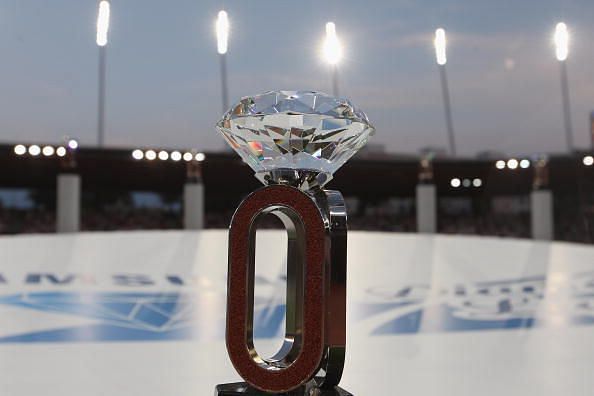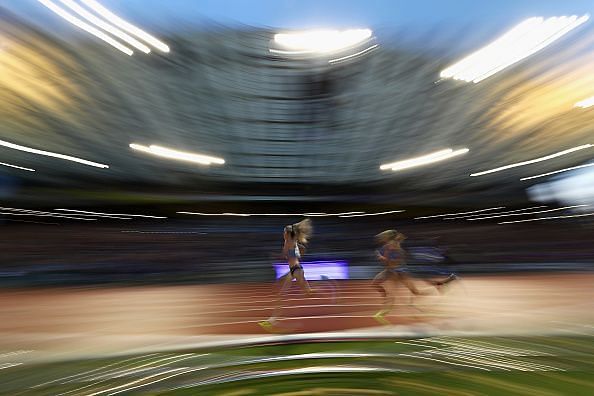
IAAF Diamond League 2017, Brussels leg: A story of tired Legs, expected champions, and triumphant newcomers
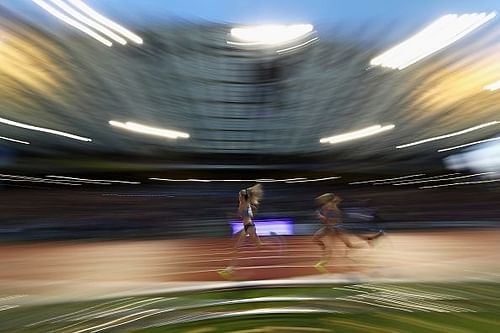
Only three weeks after the closing night of the IAAF World Track & Field Championships in London, England, and the eyes of the world once again descended upon the stars of the sport, as they took the track for the Memorial Van Damme in Brussels for the final of the 2017 IAAF Diamond League.
Signifying the unofficial end of the 2017 season and a final extreme exertion for many of the athletes before a fall of repose, the meet in Brussels was the second of two finals, yielding cash prizes of $100,000 (INR. 64 lakhs approx) in every race, throw and jump with a $50,000 (INR 32 lakhs) prize for each newly crowned champion.
The Diamond League Final in Brussels was the culmination of 13 one and two-day events staged in 13 countries over 16 disciplines for each gender. With track and field athletes often being paid far less than their compatriots in other sports, the Diamond League provides one of the only outlets for non-marathon runners to cash in big.
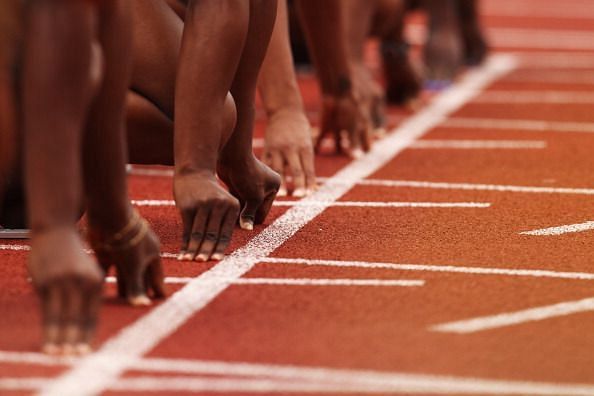
With 2018 devoid of any major international championships, Brussels was the last chance for athletes to wield their dominance and make their names are known until the 2018 Diamond League circuit and 2019 World Championships in Doha. After a somewhat bizarre year of track and field, especially the World Championships, with such legends as Usain Bolt and Mo Farah finally toppling from their high perches, the meet would prove to be one last chance to set the record straight.
Accordingly, fast sprints, prolonged attacks, long jumps, and distant throws were on call as the champions of London did battle with those who felt wronged by their performances in the city of the old smoke. In the 16 disciplines contested last Friday, we saw redemption, solidification, provocation and fast times.
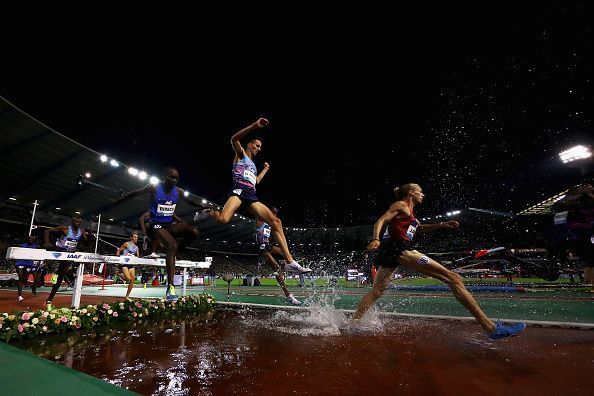
One of the main storylines coming in was centred around the men’s 3000-meter steeplechase. The race featured most of the finalists from London, including all three medalists, but all eyes were on Evan Jager. Jager, the American Record holder and the 13th fastest competitor of all time, was expected to challenge for the win after a disappointing bronze medal in London.
The silver medalist in Rio at the 2016 Olympics, he went into London as the heavy favourite, notwithstanding the historic dominance of Kenyan runners in the event. Things hadn’t turned out as Jager hoped in London, and the race in Brussels seemed likely to be an interesting rematch as Jager would battle London co-medalists Conseslus Kipruto of Kenya (gold) and Soufiane El Bakkali of Morroco (silver).
With an early pace of 7:55 (the world record is 7:53) set by the two rabbits, John Koech and Haron Lagat, the race was off to a fast start, with Jager looking comfortable and dangerous early. When the race slowed, Jager took the lead and pushed it, with Kipruto close behind. While Jager ended up increasing the pace from a mile out in order to string out the field, his efforts came up short as he was passed on the last lap by both Kipruto and Bakkali.
Kipruto unleashed a 60-second last lap to sprint by Bakkali in the last few meters to win, and Jager would barely hang on for third after falling at the last water jump. While the race didn’t go exactly as planned, as Jager’s attack fell short in his quest for redemption, he can rest knowing he has a chance for fast times in the summer of 2018 and will be able to prepare to do battle once more with Kipruto and EL Bakkali at the Doha World Championships.
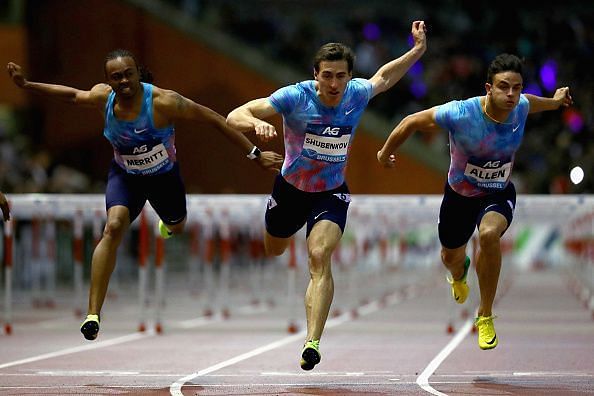
No athlete was looking to prove his critics wrong more than Russian Sergey Shubenkov, the 2015 World Champion in the 110-meter hurdles. Shubenkov has blown the world of hurdle racing wide open since his entrance into the global scene in 2013 when he picked up a bronze medal at the Moscow World Championships.
Battling the world’s best, including Olympic Champion Omar Mcleod of Jamaica, Shubenkov has been hampered by the actions of his countrymen. Shubenkov has never failed a drug test but was denied access to the 2016 Olympics due to the fact that the entire Russian team was banned because of a systematic state-sponsored doping program.
While he was allowed to compete in this year’s World Championships - one of only a handful of Russians to be allowed to do so, he was made to compete under the flag of the IAAF and be designated as an “Authorized Neutral Athlete.” This designation certified that he had been subject to regular, reliable doping controls. Shubenkov not only managed to make the London final, but he won the silver medal, just being edged out by McLeod.
While Omar McLeod was a notable absence from the Brussels final, the race featured a majority of the London finalists. Shubenkov got off to a slow start, trailing the world record holder and former Olympic champion from the U.S., Aries Merritt. However, Shubenkov accelerated over the last three hurdles, claiming the win and the $50,000 first prize. As the debate about Russia’s involvement in track rages on, the emergence of such Authorised Neutral Athletes as Shubenkov sends a clear message that they will not yield their potential to the sins of a few.
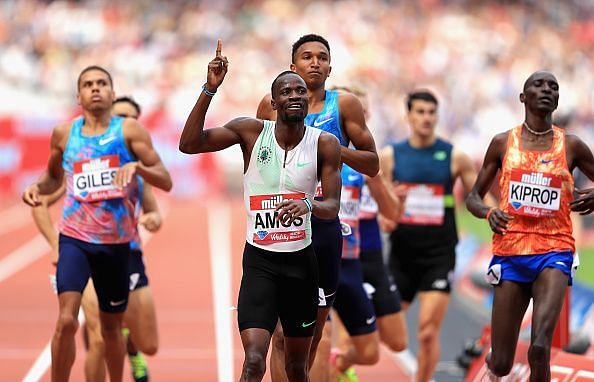
While Shubenkov followed up on his London success and deservedly grabbed intense media attention, four other Brussels winners came back after disappointing races in London. Nijel Amos, the former World Youth Champion from Botswana, won an Olympic silver medal in 2012, running the third fastest of all time in the 800 meters at 1:41.73.
Since then, he has struggled on the world stage. While he won a number of Diamond League races leading up to and following London, his disappointing 5th place in London raised questions about his ability to perform when it counted. In Brussels however, Amos got off to his characteristic fast start, the one that won him silver in 2012, and sat right behind the pace maker, Bram Som of the Netherlands.
He grabbed the lead with just under a lap to go and survived attacks by Polish heavyweights Marcin Lewandoski and Adam Kzcot - leaving critics and fans alike wondering what could have been had he exhibited similar running acumen in London.
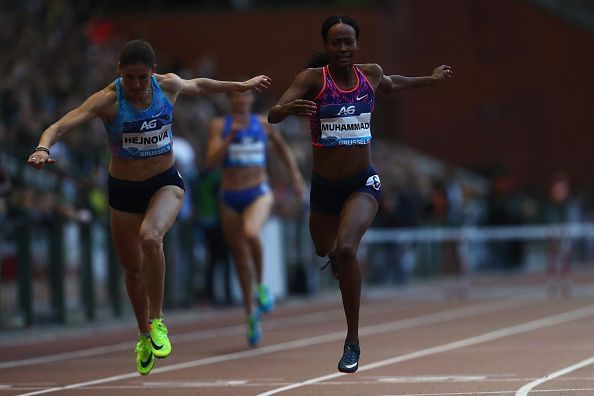
Dalilah Muhammad, the 2016 Olympic champion in the 400 hurdles, looked unbeatable leading up to the World Championships. She had run the fastest time since 2011 to win the 2017 U.S. Championships but then lost in London to a resurging countrywoman, Kori Carter. With Kori Carter a key absence from the Brussels final, Muhammad battled with Zuzana Hejnova of the Czech Republic, a two-time World Champion.
Muhammad showed her quick form early on as she made up the stagger and pulled level with Hejnova before the second turn. Ultimately, after an attack by Hejnova around the final bend, Muhammad was able to clinch the win with a burst of speed off the last hurdle, laying the groundwork for fast times in 2018.
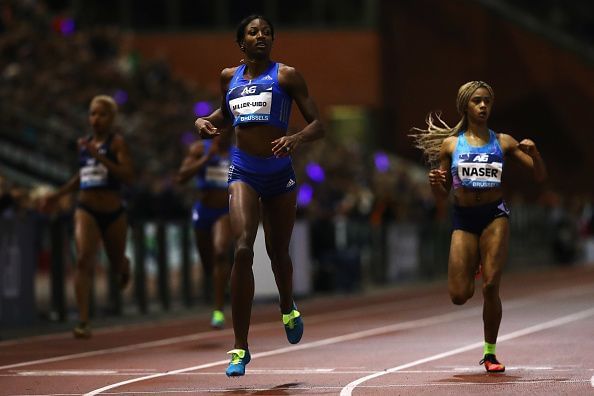
While Muhammad was looking for one level of redemption after her non-gold in London, Shaunae Miller-Uibo, the Bahamian 400-meter runner was fighting for her life. In London, newly married Miller-Uibo came in as the clear favourite, not only because of her win in Rio but because of her early form throughout 2017.
Initially, she did not disappoint, easing through the rounds and making it to the final. However, when she crossed the finish line in the final, she was made to ask herself how she could have faltered so badly, stumbling across the line in fourth place after leading for 370 meters.
With this hanging over her head, the Brussels race was promising drama, as Miller-Uibo faced one of the three women who robbed her of a medal, Bahranian youngster Salwa Naser. The race lived up to all of its hype as Miller-Uibo started hastily, taking no prisoners as she sped out to a yawning gap over the rest of the field.
Around the final turn and down the homestretch, the Bahranian phenom tried her best, sprinting to a new national record, but falling just inches short of the steady Miller-Uibo.
The last sprinter looking for redemption was Elaine Thomson, the Jamaican 100 and 200 meter Rio Olympic sprint queen. Coming into the World Championships, Thomson had won all seven Diamond League races she entered, looking like the clear favourite. In the 100 meters, after looking strong through the rounds, Thomson wasn’t able to produce any of her usual late race heroics as she ultimately faded to fifth, watching from behind as her American rival Tori Bowie chased down the pace setter and eventual silver medalist Marie Ta-Lou from the Ivory Coast.
Thomson came up scratching her head, wondering how she lost so badly on the biggest stage. Bowie wasn’t in Brussels, but Thompson engineered a come-from-behind victory over Ta-Lou, gaining a measure of redemption for her London failure.
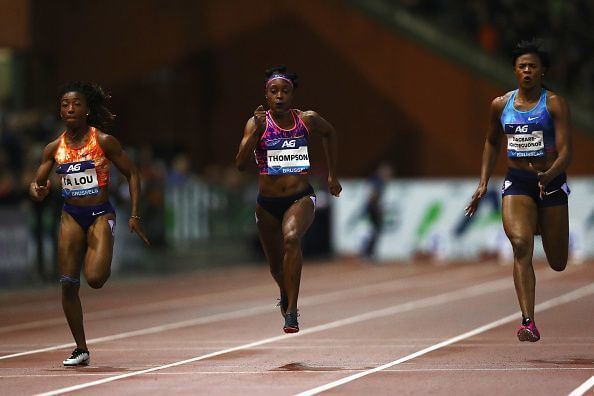
Noah Lyles missed making the American team for London due to injury but managed to qualify for the Brussels final off of his early season performances. The 20-year-old American sprinter burst on the scene this year with a world record in the 300 meters indoors. Running in lane nine in Brussels, Lyles wasn’t phased by the appearance of multiple London stars, including the gold medalist from Turkey, Ramil Guliyev. While the eyes of the world were upon the middles of the track and a hair pulling battle between Ameer Webb of the United States and Guliyev, Lyles utilized the endurance that he exhibited to the world in his 300 records and outlined his two main competitors at the line, capping off his first professional year of racing.
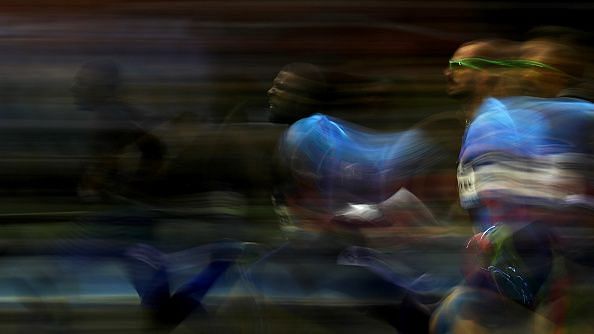
Sandra Perkovic, the Croatian double Olympic and World Champion in the discus throw, entered her event in Brussels fresh off another solid win in London and was feeling good with a six-event winning streak. Notwithstanding her hot streak, she faced tough competition from her fellow London medalists, including Australian Dani Stevens, who she had beaten by less than a meter, and bronze medalist from France, Melian Michon, who was trending upward with her season best performance in London. Perkovic prevailed easily, routing her closest opponents by more than three meters and setting a record for the most Diamond League titles by a woman.
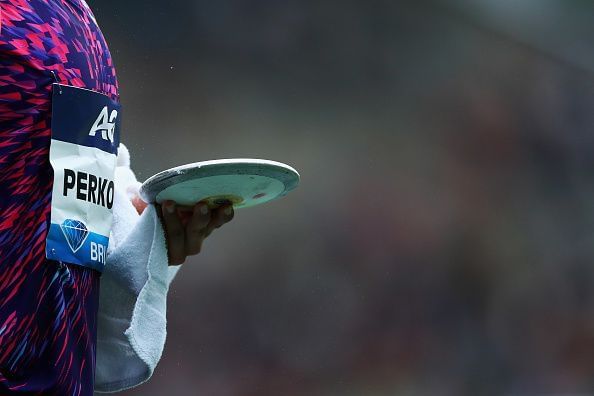
Helen Obiri was strong throughout the 2017 season. Now 27, Obiri, first became known with her 2012 World Indoor title, which she followed up with a bronze medal at the Outdoor World Championships in 2013, both at the 1500 meter distance. Since then, she had a baby and battled injury, before she returned to the global circuit with a silver medal performance in the 5000 meters. 2017 saw her rebound even further including her workmanlike win in London, beating 10,000 meter champ Almaz Ayana of Ethiopia. Brussels was no different, and after briefly sparring with fellow Kenyan Carolyn Chepkoech, Obiri ran away with the race with two laps to go. Obiri looks poised to dominate in 2018 and beyond.
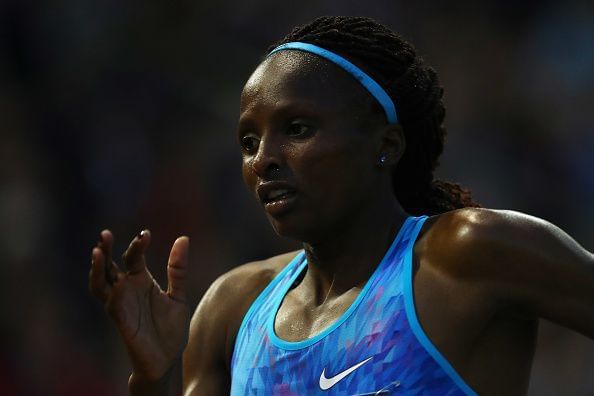
Finally, Obiri’s compatriot, Faith Kipyegon looked to extend her winning streak, coming off not only a win in London but also in Rio. In London, she showed her versatility, staving off an attack by Sifan Hassan of the Netherlands and claiming the world title. In Brussels, she once again faced Hassan, as well as the silver medalist in London from the United States, Jennifer Simpson. The pace would end up being quite brisk, and while Simpson was never in the race in spite of running a two second seasonal best, Hassan was competitive to the end. Kipyegon went on to win, uncorking a 60-second last lap en route to setting her own seasonal best, only slower than Sifan Hassan’s world-leading time from earlier in the year.
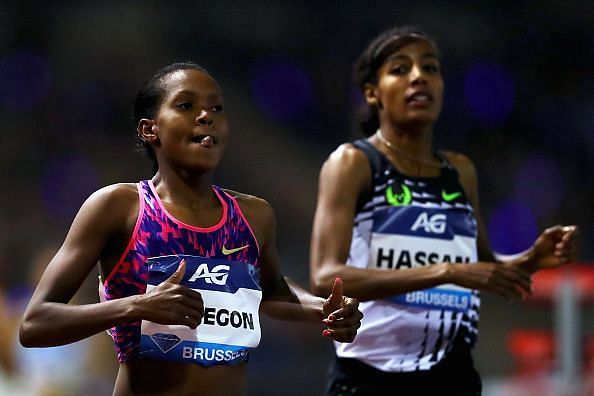
While many track fans may be sad that the 2017 season has ended, and with it three straight years of global championships, they should find solace in the Brussels results, which showed that epic races can occur both in and outside of championship events. With many months to rest and begin to plot their 2018 season, we can look forward to the next big outdoor track and field occasion when they go head-to-head, the first meet of the 2018 Diamond League series – May 4th in Doha. Mark your calendar.
